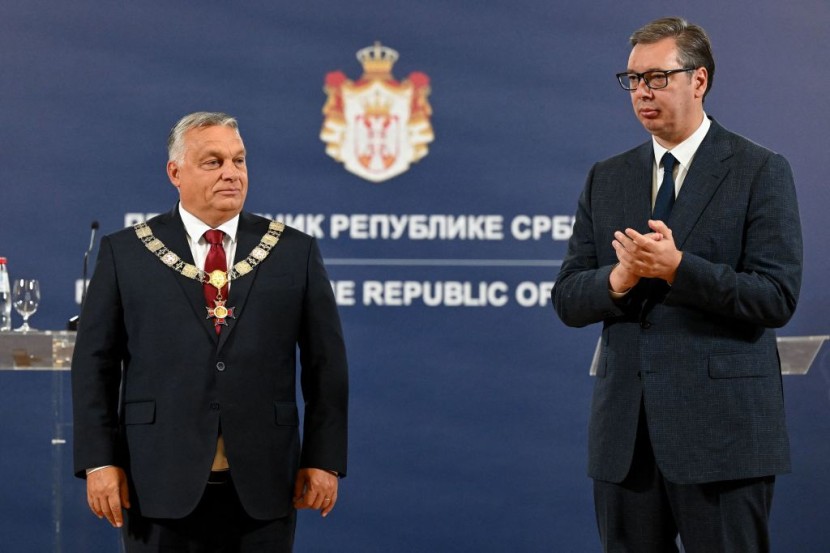
The Hungarian and Serbian governments will build a pipeline that pumps Russian oil from the Urals, which passes through the Druzhba pipeline that will terminate in Belgrade. It is a response to gain energy security after the start of the Ukraine conflict that has turned the EU topsy-turvy.
Sanctions Affect Many EU States
A new set of punitive measures has been imposed on oil shipped through Croatia to stifle Russian energy shipments authorized by the EU; Budapest announced this on October 10th, reported the Epoch Times.
To deter Moscow, the EU imposed sanctions exacted by Washington, which does not want Russia to defeat Ukraine. The plot thickens as the EU goes all-out to limit oil prices shipped by sea to third-country buyers of Russian oil, noted Hart Energy.
Serbia gets its Russian oil supplies via the JANAF oil pipeline, which transits, passing Croatia. The two leaders, Serbian President Aleksandar Vucic and Hungarian Prime Minister Viktor Orban, had decided to construct a pipeline pumping oil terminating in Hungary.
Zoltan Kovacs on Twitter posted via social media regarding this arrangement between the two countries. He added that the new oil pipeline would provide Hungarian and Serbian governments with lower-priced Urals crude oil by linking to the Friendship pipeline project.
Furthermore, there is evidence that the Russian oil supplied to Serbia comes from a Croatian pipeline, but Washington's rash sanctions have hampered it.
Hungary has also been obtaining oil from the southern outlet of the Druzhba line, which is delivered to the Czech Republic, Slovakia, and Ukraine.
Read Also : Russia Nuclear Weapons: Volodymyr Zelensky Warns Danger of Vladimir Putin Nuclear Threats to Ukraine
The Central European country, which is highly dependent on Russian oil and gas, is the fiercest critic of the bloc's sanctions against Moscow.
For many years, the oil pipeline was the primary source of crude oil for the three nations' processing facilities. Orban has voiced concerns that the restrictions will indeed keep driving up energy prices, yet his state voted to support last week's punitive measures package, citing Al Jazeera.
As a result, he announced a national poll to reach a consensus on sanctions against Moscow.
The Hungarian Prime Minister stated his nation is carrying gas reserves valued at approximately five to six months' usage. He stated earlier in the month that his administration would provide gas to Serbia if required.
Providers are NIS, Serbia's state oil company Russia's Gazprom Neft, and Gazprom as the largest group stakeholders.
Washington To Harass Dissenting Bloc Members
The EU and the United States have been finding fault with the Serbian government after it reached an agreement with Russia that it would hold long-term talks on matters of foreign relations.
In the meantime, Serbia is already trying to get into the European Union's 27-member coalition. German Chancellor Olaf Scholz talked with Viktor Orbán in Berlin on Oct. 10 to try and understand the Ukrainian conflict.
Following that, Orbán spoke at an economic conference organized by the Eastern Committee of German Business, an organization dedicated to strengthening Germany's economic ties with Eastern and Central Europe.
The Hungarian and Serbian governments are building a pipeline that will transport Russian oil to Serbia and Hungary to have energy security.
Related Article: Former Russian President Ominously Warns Kiev Regime To Receive More Retaliatory Strikes








